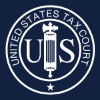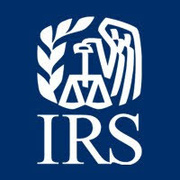Closing Date: 23rd May, 2024
Description:
Summary:The General Counsel provides legal advice and assistance to the U.S. Tax Court. The General Counsel works under the general supervision of the Chief Judge. The Assistant General Counsel assists the General Counsel in providing legal and policy advice and assistance to Judges and Court staff on a broad variety of issues. Both the General Counsel and Assistant General Counsel have a confidential working relationship with the Clerk of the Court, Judges, Special Trial Judges, and senior staff.
Duties:
The General Counsel (1.) Serves as a principal general legal adviser to the Court, interpreting laws and providing legal opinions on a breadth of practice areas including but not limited to procurement law and government contracts, appropriations law, and employment law; (2.) Provides advice and guidance on legislative, administrative, organizational, ethics and conduct, budgetary, and management matters; (3.) Serves as the Court's compliance officer and evaluates activities and functions to assess compliance with laws, regulations and contract provisions. Identifies deficiencies and makes recommendations to ensure compliance with program requirements; (4.) Drafts policy and related documents to memorialize the Court's stance on a variety of issues affecting Court operations; (5.) Represents the Judges and employees acting in their official capacities in judicial and administrative proceedings. This includes drafting pleadings, reviewing complaints, and coordinating with the Department of Justice and or outside counsel on such matters.
The Assistant General Counsel assists the General Counsel in providing legal and policy advice and recommendations, including written opinions, with respect to a broad variety of administrative, organizational, and management matters affecting the Court. Practice areas include, but are not limited to, tax law, procurement law and government contracts, appropriations law, and employment law. The Assistant General Counsel also assists with Court Committee work, legislation, budget matters, ethics inquiries, opinion review, suits against Judges and the Court, and substantive and procedural matters relating to cases before the Court.
Requirements:
Conditions of Employment:
Conditions of Employment:
See "ADDITIONAL INFORMATION" for complete Conditions of Employment.
Qualifications:
Minimum Qualifications and Evaluation Criteria:
The successful applicant should be a highly motivated self-starter, an organized team player, and must consistently exhibit good judgment and tact. To qualify for the position:
Education:
Candidates must be a graduate of a full course study in a School of Law (must have a J.D. or an LL.B. degree) accredited by the American Bar Association and a member in good standing of the bar of a state, territory of the United States, the District of Columbia, or the commonwealth of Puerto Rico.
- Applicants must be United States Citizens or Nationals.
- All Court employees are required to adhere to the Code of Conduct for U.S. Tax Court Employees.
- Employment at the United States Tax Court is subject to the provisions of the United States Tax Court Personnel Management System, a distinct system of personnel management practices specific to the Court as authorized by Public Law 111-366.
- The United States Tax Court Personnel Management System adheres to the provisions set forth in section 2301(b) of title 5, United States Code (Merit Systems Principles) and section 2302(b) of title 5, United States Code (Prohibited Personnel Practices). All United States Tax Court personnel must conduct themselves in accordance with these provisions.
- Appointments under the United States Tax Court Personnel Management System subsequent to January 4, 2011, do not grant the rights to (a) appeal a reduction in grade or removal to the Merit Systems Protection Board under chapter 43 (https://www.law.cornell.edu/uscode/text/5/chapter-43) of title 5, United States Code; (b) appeal an adverse action to the Merit Systems Protection Board under chapter 75 (https://www.law.cornell.edu/uscode/text/5/chapter-75) of title 5, United States Code; (c) appeal a prohibited personnel practice described under section 2302(b) of title 5 (https://www.law.cornell.edu/uscode/text/5/2302#b), United States Code, to the Merit Systems Protection Board under chapter 77 of that title (d) make an allegation of a prohibited personnel practice described under section 2302(b) of title 5 (https://www.law.cornell.edu/uscode/text/5/2302#b), United States Code, with the Office of Special Counsel under chapter 12 of that title for action in accordance with that chapter; or (e) file an appeal with the Equal Employment Opportunity Commission under part 1614 (https://www.law.cornell.edu/cfr/text/29/part-1614) of title 29 of the Code of Federal Regulations.
- Employment with U.S. Tax Court is "at-will;" employment may be terminated at any time by either party, with or without cause.
- Those who are required must abide by Selective Service registration requirements.
- Appointment to these positions is contingent upon favorable suitability determination and security background checks, which include a credit check and a criminal check.
Qualifications:
Minimum Qualifications and Evaluation Criteria:
The successful applicant should be a highly motivated self-starter, an organized team player, and must consistently exhibit good judgment and tact. To qualify for the position:
- Candidates must be a graduate of a full course study in a School of Law (must have a J.D. or an LL.B. degree) accredited by the American Bar Association and a member in good standing of the bar of a state, territory of the United States, the District of Columbia, or the commonwealth of Puerto Rico.
- Must possess at least ten (General Counsel) or six (Assistant General Counsel) years of legal professional experience as a private practitioner or as an attorney on the staff of a government law office or court, and managerial experience related to the field of litigation or adjudication. Managerial or legal experience within the Federal court system is preferred.
- Ability to respond to requests on short notice and to manage multiple tasks and stringent deadlines.
- Aptitude and experience dealing with professional legal staff, court personnel, Federal agency officials, and the public and an ability to effectively communicate orally and in writing.
- Solid critical-thinking and problem-solving skills.
- Excellent organizational skills and attention to detail.
Education:
Candidates must be a graduate of a full course study in a School of Law (must have a J.D. or an LL.B. degree) accredited by the American Bar Association and a member in good standing of the bar of a state, territory of the United States, the District of Columbia, or the commonwealth of Puerto Rico.







